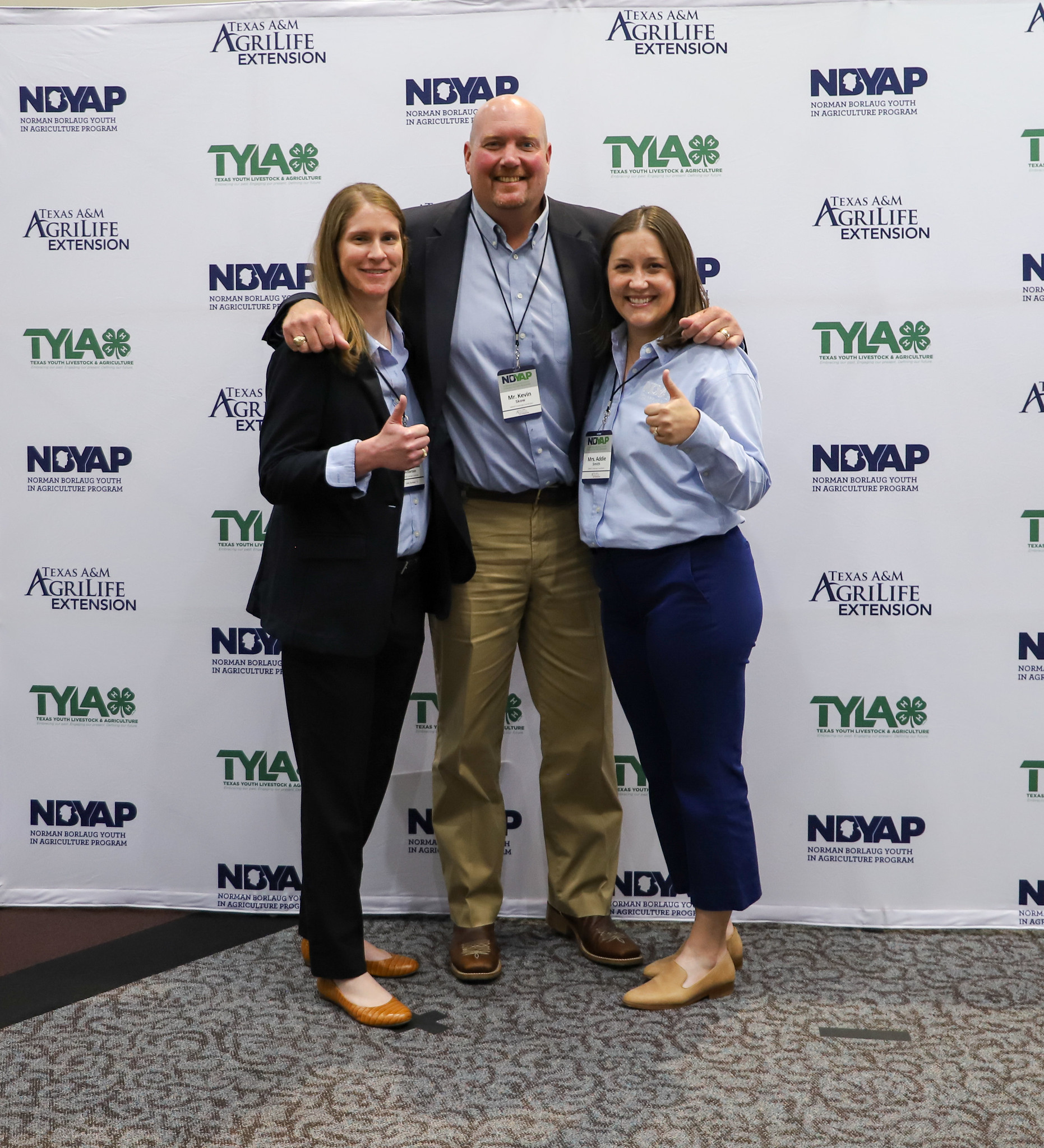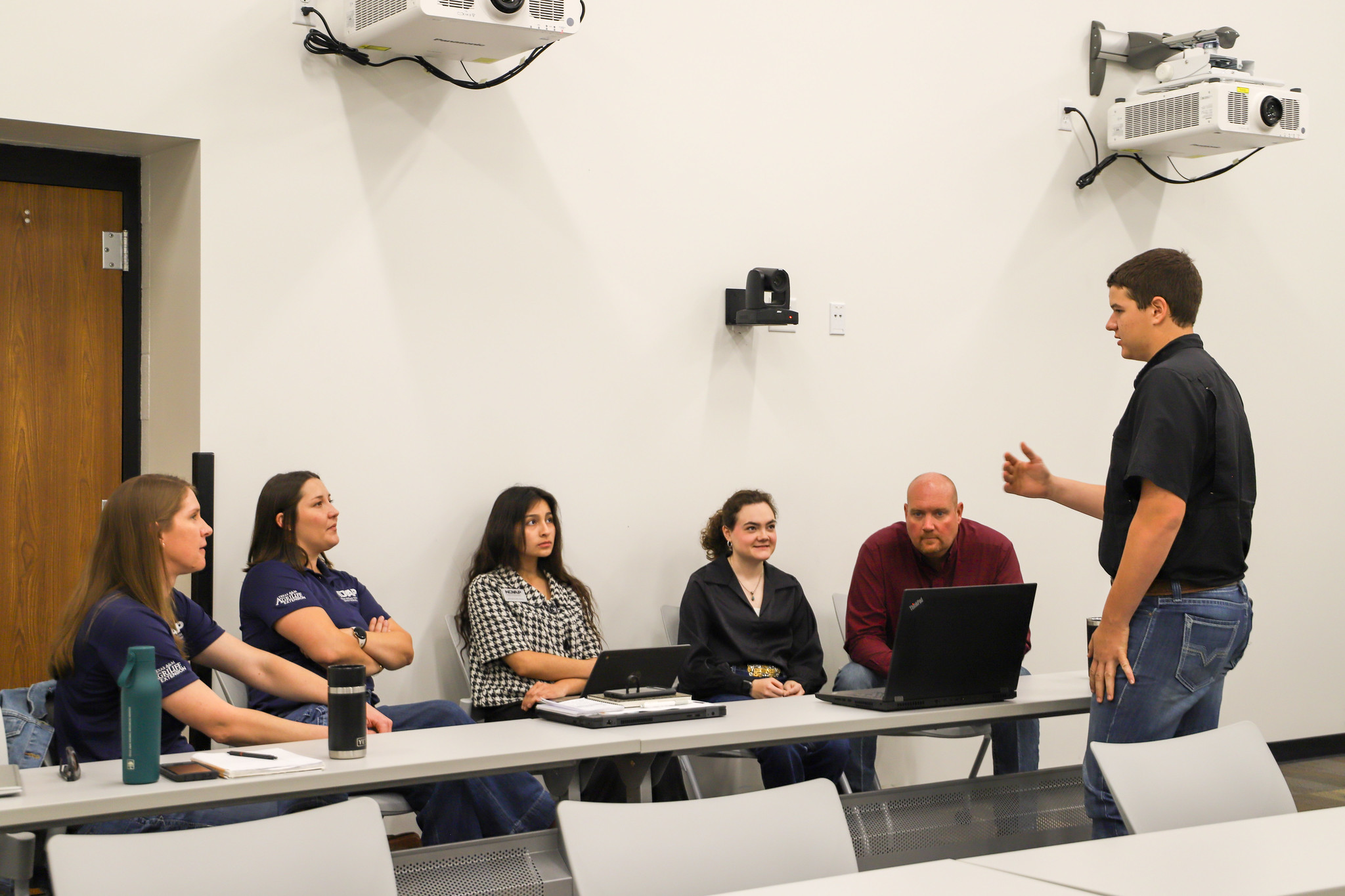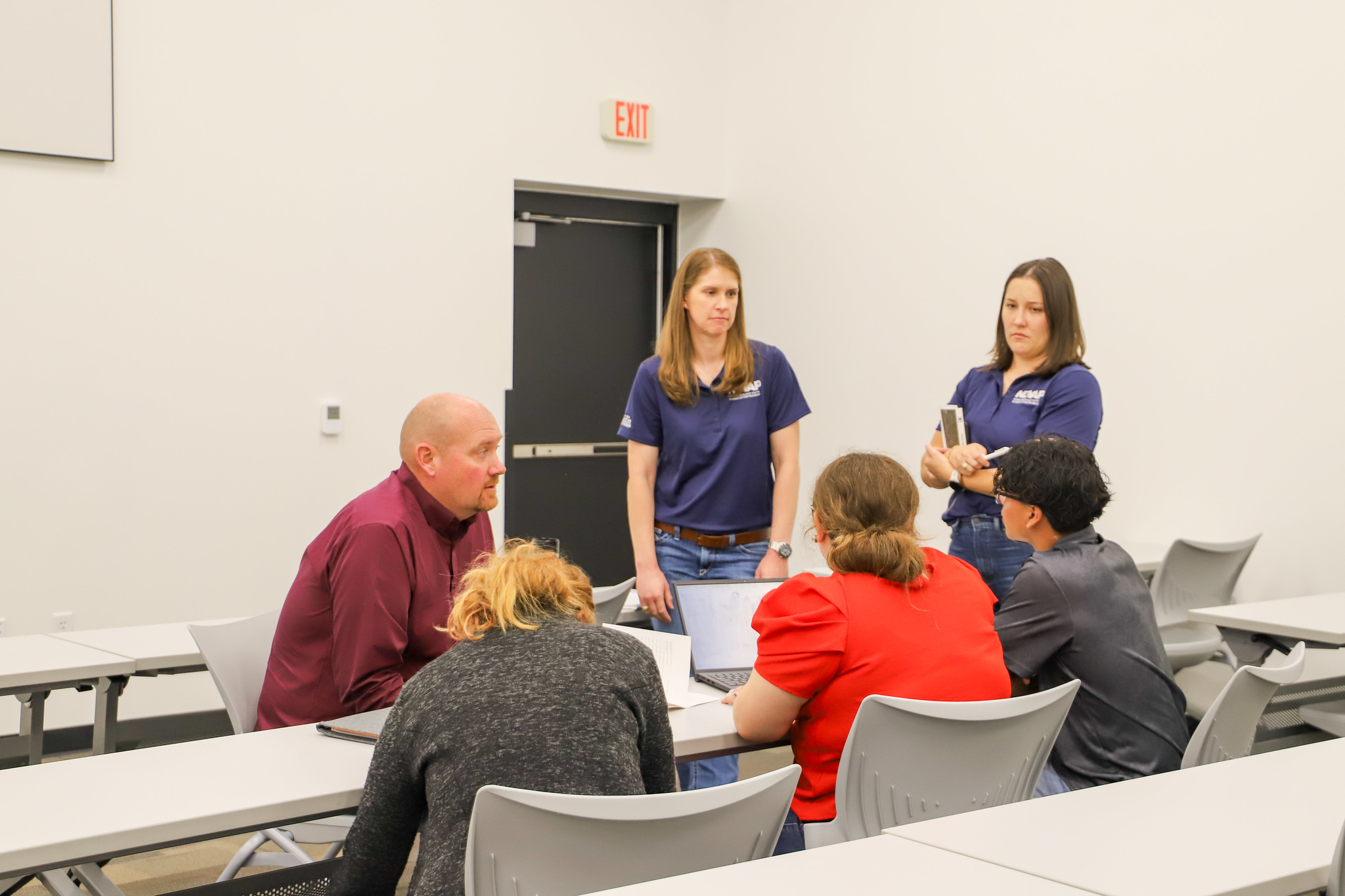

NRI Scientists Mentor Youth in the Norman Borlaug Youth in Agriculture Program
July 19, 2024
The lived experiences of urban and rural Texans are often vastly different—whether culturally, ecologically, or economically—but our cumulative stories and actions will determine the future of this great state. Texas is home to 7 of the 15 fastest-growing cities in the nation and its population has seen over a 48 percent increase in the last two decades primarily around these urban centers. Such rapid growth is creating an unprecedented overlap between urban and rural communities as working landscapes are converted to more suburban, developed areas. Our Texas Land Trends Program is using data to map out these changes in Texas’ population, land ownership, and land conversion so decision-makers can better plan for future problems and develop beneficial resources for the communities and individuals affected by the changing landscape. There is now a growing need to encourage collaborative relationships between Texans of all backgrounds to protect our natural resources, native landscapes, and the sustainability of working lands. Because we are uniquely positioned to speak on land trend issues, we seek to share our expertise about critical natural resource issues with all Texans. Most recently, we had the chance to mentor some of our future leaders on how they can work together to improve Texas lands from their own hometowns.
The Norman Borlaug Youth in Agriculture Program was developed for rural and urban Texas high school students to develop collaborative relationships between their communities and learn about the current and future natural resource issues Texas is facing, such as water availability, land fragmentation, food insecurity, and ecosystem services. The program has three stated outcomes:
- The program will serve as a connection point for agricultural conservation, artistic expression, cultural understanding and advocacy education. Constructive networks will be developed to transcend socioeconomic, regional, and urban and rural backgrounds.
- Enlighten urban and rural youth leaders on the importance of agriculture through exposure to the Dr. Norman Borlaug spirit in agricultural education, experiential learning and artistic expression. Thus, creating agricultural advocates in rural and urban Texas.
- Youth leaders from rural Texas will gain critical insight into urban culture and needs while building constructive relationships with their urban counterparts. Students will gain collaborative skills by participating in challenging learning environments


NRI volunteer mentors Amanda Anderson, Kevin Skow, and Addie Smith (left to right). Photo: Texas 4-H Youth Development
This year, three scientists from the NRI Geospatial Analysis Team, Amanda Anderson, Kevin Skow, and Addie Smith, volunteered to act as the Land Fragmentation Challenge Coordinators and mentored a group of 10 students from November to May 2024. The program presented the students with a “wicked problem” related to land fragmentation in Texas and guided them through the process of finding a solution. The group was split into three separate teams who focused on 1) the importance of ecosystem services from working lands, 2) wildlife tax valuations for landowners, and 3) standards and incentives for suburban Texans to help offset the negative impacts of converting working lands to residential developments. Using the guiding questions, list of resources, and presentations about land trends in Texas from their NRI mentors, each team came up with solutions to their unique issues. They presented their capstone projects at an event held at Texas A&M University in College Station, TX at the end of the program.

NRI volunteer mentors and their group of 10 students. Photo: Texas 4-H Youth Development
“These weren’t called “wicked problems” for nothing! These students were faced with very difficult challenges that Texas is currently facing and that leaders in this state are struggling to solve,” Program Coordinator Addie Smith shared. “I enjoyed getting to see the ideas presented from a new generation of leaders. And enjoyed getting to spread the knowledge about the wicked problem of land fragmentation for both urban and rural communities. It was the ultimate opportunity to fully connect the Land Trends dots!”
The students in the program came up with innovative solutions for approaching their wicked problems that covered everything from educational workshops to teach urban planners about the importance of ecosystem services to creating a new tax appraisal system aimed at preventing smaller acreage landowners from experiencing significant financial losses resulting in their selling land to developers. The students are high achievers with excellent leadership and speaking skills, but our mentors were impressed time and time again with their problem-solving skills, new perspectives, and eagerness to learn.





Student mentorship sessions. Photo: Texas 4-H Youth Development
“We had students from downtown Houston working in the same group as the students who lived on farms east of Austin. That was probably my favorite part of the experience, to be able to witness students with different backgrounds working together on a challenge that affects urban and rural communities alike,” said Kevin Skow, Geospatial Analyst. “I got to see them learn from each other and learn how to approach a complex natural resource issue like land fragmentation from different perspectives by listening and navigating findings together. It was just as much a rewarding experience for me as it was for these future leaders.”
This was an exciting opportunity for us to provide our expertise to prepare these leaders of tomorrow for what the future holds and equip them to listen to and collaborate with Texans of different backgrounds. Filling in knowledge gaps for Texans is part of our Extension mission, and establishing valuable connections and partnerships with programs like the Norman Borlaug Youth in Agriculture Program allows us to create a bigger impact and give back to both our urban and rural communities.
“This program provided an excellent opportunity to educate students on a topic they likely do not discuss in detail in the classroom yet impacts each one of them no matter where they reside,” said Geospatial Analyst Amanda Anderson. “I’m encouraged by these students’ willingness to learn and work together as they will soon play an important role in solving this complex issue both as leaders and voters.”
Land fragmentation and working land loss are indeed wicked problems for Texans, and we work to inform current and upcoming leaders about these changes and face each new challenge the future holds through innovative collaboration.
Learn More
Land & water trends
Informing private and public decision-makers about the status and trends of our state’s working lands









